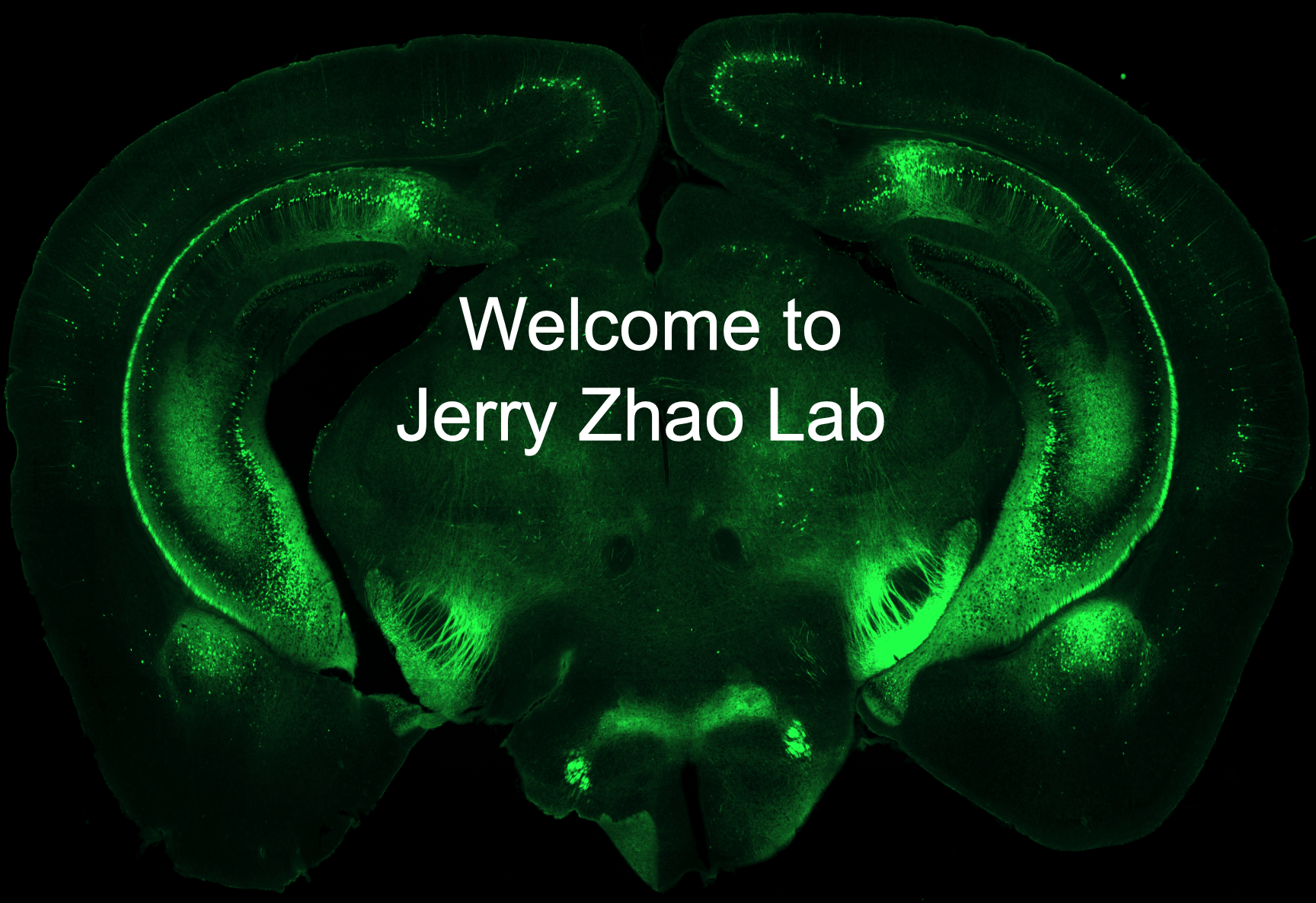
We are part of the Department of Biomedical Sciences in the College of Osteopathic Medicine at the New York Institute of Technology (NYIT).
Research in the Jerry Zhao Lab combines neurobiology, glycobiology, and genomics to understand the role of heparan sulfate and long genes in brain health and diseases, particularly in Alzheimer’s disease, Parkinson’s disease, and Kallmann syndrome. (1) Heparan sulfate is a sugar molecule that covers the surface of all human cells. Heparan sulfate plays an important role in the pathogenesis of multiple brain disorders, such as Alzheimer's disease and Parkinson’s disease. (2) Long genes (> 100 kilobases) are specifically expressed in the brain and show unique genomic and epigenomic features. Long genes are associated with brain disorders, such as autism and Alzheimer’s disease.
The lab uses multidisciplinary approaches including disease mouse models, genomics, glycobiology, neuroscience, bioinformatics, and molecular biology.
